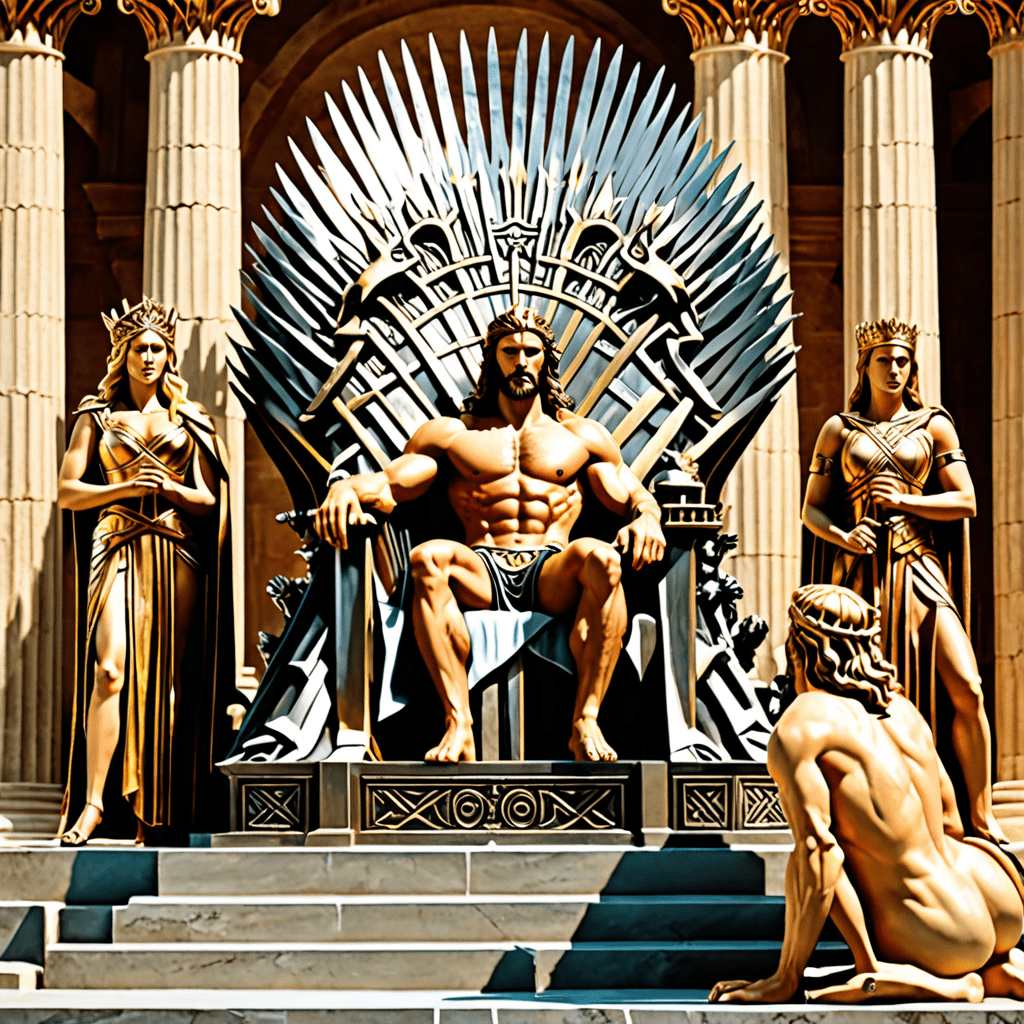The Alchemical Journey: Transformations That Ignite the Imagination
I. Introduction to Alchemy
Alchemy, often seen as a mystical and esoteric practice, has its roots in ancient philosophies and sciences. It represents a quest for transformation, both materially and spiritually. Historically, alchemy was a precursor to modern chemistry, but its significance extends far beyond mere chemical experimentation.
At its core, alchemy symbolizes transformation—of base metals into gold, of the mundane into the extraordinary, and of the self into a higher state of being. This transformative symbolism resonates deeply with the human experience and the power of imagination.
The connection between alchemy and imagination lies in the way both encourage exploration beyond the surface. Alchemy invites us to envision possibilities, pushing the boundaries of our understanding and creativity.
II. The Philosophical Foundations of Alchemy
Alchemy is built upon several philosophical foundations, each contributing to its rich tapestry of meaning and practice.
A. The Four Elements: Earth, Water, Air, Fire
These four elements are essential to alchemical theory, representing the building blocks of all matter. Each element embodies specific qualities:
- Earth: Stability, structure, and materiality.
- Water: Fluidity, emotion, and intuition.
- Air: Intellect, communication, and movement.
- Fire: Transformation, energy, and passion.
B. The Principle of Correspondence
This principle suggests that there is a connection between the macrocosm (the universe) and the microcosm (the individual). The famous phrase “As above, so below” encapsulates this idea, emphasizing that understanding ourselves can lead to understanding the universe.
C. The Role of the Philosopher’s Stone
The Philosopher’s Stone is a legendary substance in alchemical lore, believed to have the power to transform base metals into gold and grant immortality. Symbolically, it represents the ultimate achievement in personal transformation and enlightenment.
III. Alchemy as a Metaphor for Personal Growth
Alchemy serves as a powerful metaphor for personal growth and self-improvement.
A. The Process of Self-Transformation
Self-transformation in alchemy can be likened to the process of refining one’s character, shedding old beliefs, and embracing new perspectives. This journey often involves facing challenges and overcoming obstacles.
B. Stages of the Alchemical Process in Personal Development
The alchemical process can be broken down into several stages:
- Calcination: Breaking down the ego.
- Dissolution: Letting go of old patterns.
- Separation: Identifying what is essential.
- Conjunction: Integrating new knowledge.
- Fermentation: Awakening the spirit.
- Distillation: Refining the self.
- Coagulation: Achieving wholeness.
C. Case Studies: Historical Figures Who Embodied Alchemical Change
Many historical figures have embodied the principles of alchemy in their lives, including:
- Carl Jung: Integrated alchemical symbols into his psychological theories.
- Leonardo da Vinci: Explored the connections between art and science.
- Paracelsus: Revolutionized medicine with alchemical concepts.
IV. The Role of Imagination in Alchemical Thought
Imagination plays a crucial role in the practice and philosophy of alchemy.
A. Imagery and Visualization in Alchemy
Alchemical texts often use rich imagery and symbols to convey complex ideas. Visualization techniques can aid in understanding and internalizing these concepts, leading to deeper insights.
B. The Power of Archetypes and Symbols
Archetypes and symbols found in alchemical traditions resonate with universal human experiences, allowing individuals to connect with their inner selves and the greater cosmos.
C. Imagination as a Catalyst for Transformation
Through imagination, individuals can envision new possibilities for their lives, fostering creativity and innovation in personal and professional realms.
V. Alchemy in Literature and Art
Alchemy has inspired countless works of literature and art throughout history, reflecting its transformative power.
A. Alchemical Themes in Classical Literature
From the works of Ovid to those of Shakespeare, alchemical themes such as transformation, quest for knowledge, and the interplay of opposites appear prominently.
B. Artistic Representations of Alchemical Transformation
Artists like Salvador Dalí and Pablo Picasso have incorporated alchemical symbolism into their works, using visual metaphors to express complex ideas about change and identity.
C. Modern Interpretations of Alchemical Concepts
Contemporary literature and art continue to explore alchemical themes, reflecting society’s ongoing fascination with transformation and self-discovery.
VI. The Intersection of Science and Alchemy
Alchemy laid the groundwork for modern science, particularly chemistry, demonstrating that the pursuit of knowledge often blurs the lines between mysticism and empirical study.
A. Historical Contributions of Alchemy to Modern Chemistry
Many early chemists were alchemists who contributed significantly to the development of chemical principles and laboratory techniques.
B. The Scientific Method and Alchemical Experimentation
Alchemical experimentation often involved rigorous observation and documentation, foreshadowing the scientific method that would later dominate modern science.
C. Innovations Born from Alchemical Thought
Many innovations in medicine, materials, and processes can trace their roots back to alchemical practices and theories.
VII. Spiritual Dimensions of Alchemy
Beyond physical transformation, alchemy has profound spiritual implications.
A. Alchemy as a Path to Enlightenment
For many, the alchemical journey represents a path to spiritual enlightenment and self-realization, offering insights into the nature of existence.
B. The Role of Meditation and Contemplation
Meditative practices are integral to spiritual alchemy, allowing individuals to reflect deeply on their experiences and aspirations.
C. The Impact of Spiritual Alchemy on Contemporary Practices
Modern spiritual movements often draw upon alchemical principles, emphasizing personal transformation and the pursuit of higher consciousness.
VIII. Alchemical Practices for Modern Transformation
Incorporating alchemical principles into daily life can foster personal and creative transformation.
A. Techniques for Personal and Creative Transformation
Practices such as visualization, goal-setting, and creative expression can facilitate transformation.
B. Journaling and Reflection as Alchemical Tools
Journaling serves as a powerful tool for self-reflection, helping individuals to process their thoughts and experiences.
C. Mindfulness and Rituals in Everyday Life
Incorporating mindfulness and rituals into daily routines can enhance awareness and promote a sense of connection to the transformative journey.
IX. The Future of Alchemical Thought
The principles of alchemy remain relevant in today’s fast-paced, ever-changing world.
A. Relevance of Alchemical Principles in Today’s World
As individuals seek meaning and transformation, alchemical principles offer valuable insights into personal and collective evolution.
B. The Role of Technology in Modern Alchemy
<



